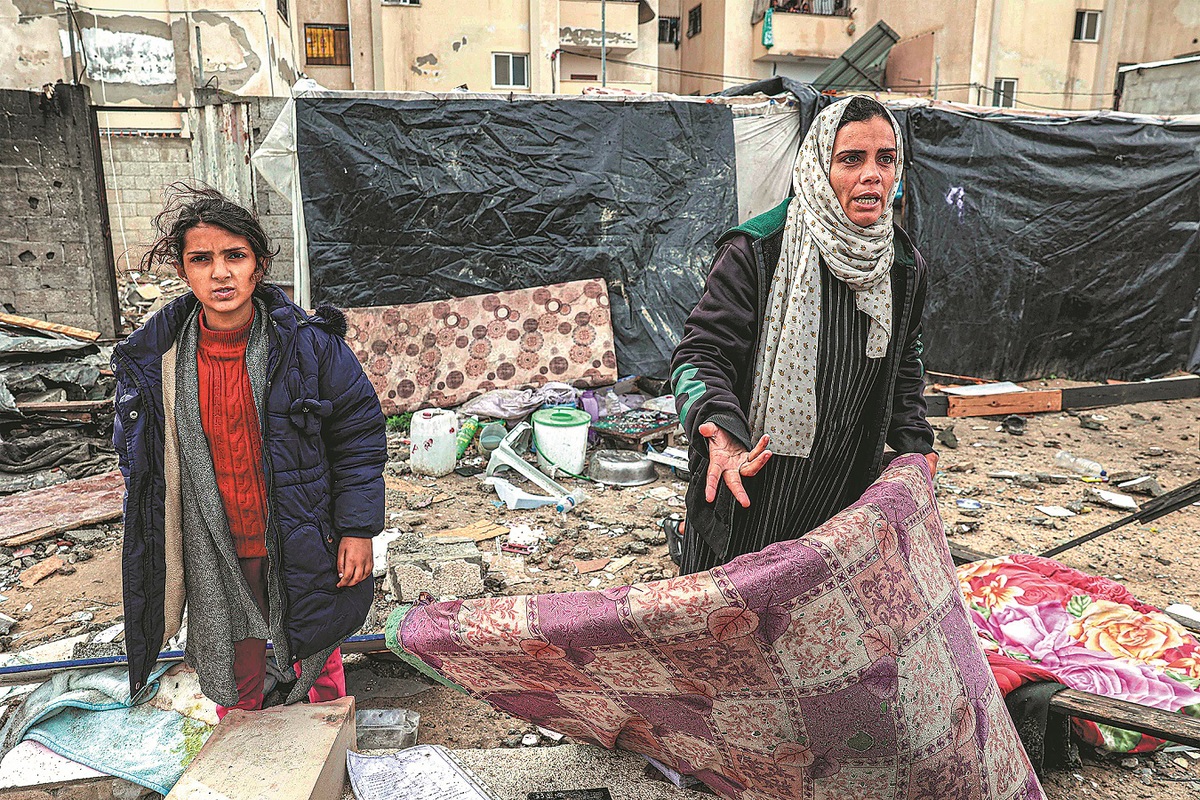Truce remains elusive in Gaza as talks fall flat
Netanyahu rejects US plea to scrap Rafah attack as humanitarian disaster warned


The latest round of contentious cease-fire talks in Qatar ended without a deal, even as Israel is accused of weaponizing starvation as it prepares to attack the city of Rafah in Gaza.
At a news conference on Tuesday, Qatar's Foreign Ministry spokesman Majed al-Ansari said they were "cautiously optimistic" about the Doha negotiations to stop the conflict in Gaza, adding that it was too early to talk about progress or success.
Al-Ansari said the initiative to establish a maritime corridor in Gaza, in which Qatar is playing an important operational role, comes within the framework of a set of initiatives to increase the entry of aid into the Gaza Strip, adding the maritime corridor "does not eliminate the need for unconditional entry of aid through land corridors".
"It is a shame that the humanitarian issue is on the negotiating table and that aid trucks are used (by Israel) as a pressure card, while we are on the verge of famine in the strip," said Al-Ansari.
Israel has been carrying out military retaliation in the Gaza Strip since the attack by Palestinian militant group Hamas on Oct 7, in which about 1,200 people in Israel were killed and more than 200 were taken hostage. The Palestinian toll in Gaza has reached 31,923, the Hamas-run health ministry said on Wednesday.
Israel sent a delegation, led by David Barnea, chief of Israel's Mossad intelligence agency, to Qatar on Sunday for new truce talks concerning a hostage deal with Hamas. The talks were also attended by Qatari and Egyptian officials.
The Israeli delegation returned to Tel Aviv on Tuesday, the Times of Israel reported.
On Wednesday, Israeli Prime Minister Benjamin Netanyahu rejected an appeal from the United States to cancel a ground operation in Rafah, where about 1.5 million displaced Palestinians reside, but agreed to send a delegation to Washington for discussions, Xinhua News Agency reported.
In his meeting with the Knesset Foreign Affairs and Defense Committee on Tuesday, Netanyahu said: "We are of course under growing international pressure, which we are rejecting in order to achieve the goals of the war.
"We have a debate with the Americans over the need to enter Rafah, not over the need to eliminate Hamas, but the need to enter Rafah. We see no way to eliminate Hamas militarily without destroying these remaining battalions," he said.
United Nations Under-Secretary-General for Humanitarian Affairs Martin Griffiths said on his X account that with famine imminent, "we must flood Gaza with food and other lifesaving aid".
UN human rights chief Volker Turk said on Tuesday that the situation of hunger, starvation and famine "is a result of Israel's extensive restrictions on the entry and distribution of humanitarian aid and commercial goods, displacement of most of the population, as well as the destruction of crucial civilian infrastructure".
Catastrophic hunger
The Integrated Food Security Phase Classification earlier released a report warning that "famine is imminent in the northern governorates and projected to occur anytime between mid-March and May 2024"as the conflict has left about 1.1 million people experiencing "catastrophic" hunger.
"The initial strategy involves negotiating a cease-fire to endure for a duration of six weeks. However, the predominant perspective is that Israel harbors concerns that any pause in hostilities will enable Hamas to reconsolidate its position," said Gokhan Ereli, Gulf studies coordinator at the Center for Middle Eastern Studies in Turkiye.
Despite this, the diminishing rhetoric of political backing for Israel from the US "appears to be a compelling factor driving Israel to the negotiation table".
"Israel is perceived to be employing a strategy of weaponizing starvation against the majority of Gaza's population, particularly concentrated in the Rafah district along Gaza's border with Egypt. Israel is reluctant to make concessions at this juncture and incite resistance within Gaza," Ereli said.
"Concurrently, there is an attempt to weaponize the negotiations by portraying them as the ultimate dialogue, the final round of talks," he said.

































